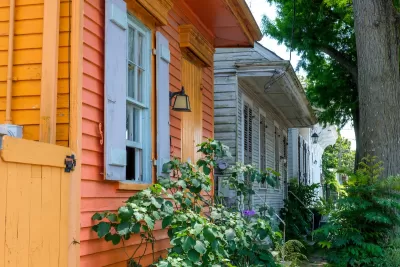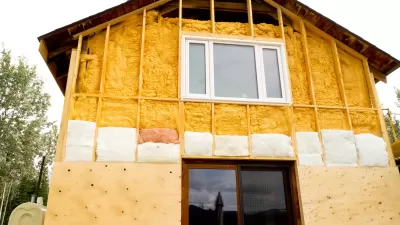While renters and homebuyers’ challenges dominate the headlines, they aren't the only ones wrestling with maintaining decent housing.

A recent Shelterforce article by Daniel McCue, senior research associate at the Joint Center for Housing Studies of Harvard University, highlights the growing financial challenges faced by low-income homeowners. This trend is often overshadowed by the focus on rising home prices and interest rates affecting potential buyers.
Key findings include:
- Rising cost burdens: Between 2019 and 2022, the number of cost-burdened homeowners (those paying over 30% of income on housing) increased by 3 million to 19.7 million households
- Most affected groups: Households earning less than $30,000 per year (70% burden rate); Homeowners aged 65 and over
- Contributing factors: Surging home insurance costs (up 21% nationally, 35% in Florida); Increasing property taxes (4.1% average rise nationwide); Higher maintenance and repair costs for aging homes
- Equity gains not a universal solution: While average homeowners gained $200,000 in equity over four years, accessing this wealth can be costly or disruptive.
- Limited assistance programs: The Homeowner Assistance Fund (HAF) helped 500,000 households but is now closed in most states; LIHEAP offers energy cost assistance but is limited in scope
- Emerging solutions: Energy efficiency programs, including new funding from the Inflation Reduction Act; State and local property tax relief initiatives; Home repair financing programs and grants
- Policy implications: McCue emphasizes the need for ongoing assistance programs to address homeowner cost burdens before they reach crisis levels, potentially avoiding more costly interventions in the future.
This trend underscores the importance of supporting existing low-income homeowners to maintain housing stability and realize the full benefits of homeownership.
FULL STORY: House Poor: Low-Income Homeowners Struggle in the Shadows

Alabama: Trump Terminates Settlements for Black Communities Harmed By Raw Sewage
Trump deemed the landmark civil rights agreement “illegal DEI and environmental justice policy.”

Study: Maui’s Plan to Convert Vacation Rentals to Long-Term Housing Could Cause Nearly $1 Billion Economic Loss
The plan would reduce visitor accommodation by 25% resulting in 1,900 jobs lost.

Planetizen Federal Action Tracker
A weekly monitor of how Trump’s orders and actions are impacting planners and planning in America.

Wind Energy on the Rise Despite Federal Policy Reversal
The Trump administration is revoking federal support for renewable energy, but demand for new projects continues unabated.

Passengers Flock to Caltrain After Electrification
The new electric trains are running faster and more reliably, leading to strong ridership growth on the Bay Area rail system.

Texas Churches Rally Behind ‘Yes in God’s Back Yard’ Legislation
Religious leaders want the state to reduce zoning regulations to streamline leasing church-owned land to housing developers.
Urban Design for Planners 1: Software Tools
This six-course series explores essential urban design concepts using open source software and equips planners with the tools they need to participate fully in the urban design process.
Planning for Universal Design
Learn the tools for implementing Universal Design in planning regulations.
Caltrans
Smith Gee Studio
Institute for Housing and Urban Development Studies (IHS)
City of Grandview
Harvard GSD Executive Education
Toledo-Lucas County Plan Commissions
Salt Lake City
NYU Wagner Graduate School of Public Service





























